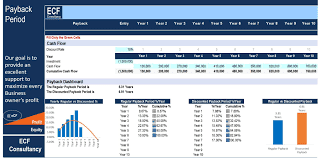Different Approaches to Conduct a Valuation of a Company
According to theory, a valuation of a company is a procedure which should consist of several phases to provide a reliable value. These phases are business analysis, accounting, financial analysis, forecasting, and valuation itself. If a phase is missing, it will be a much more complex process to conduct a valuation. In other words, the valuation is just a part of a whole working financial model.
There are three commonly used valuation approaches which are classified as follows:
1. Asset-Based Approach – analyzing and evaluating a company’s assets and liabilities to obtain the substance value which is also the equity.
2. Income-Based Approach – estimating the business value by calculating the present value of all the future cash flows which is expected to generate.
3. Market-Based Approach – determines the value by comparing one or more aspects of the subject company to similar aspects of other companies which already have established market value.
These approaches are commonly used to evaluate the business’ or projects’ health of cash flows, timing of cash flows, net assets, potential earnings, and other expenses. Generally, the final value will of course differ from the buyer’s and seller’s point of view. This is mostly due to their differing goals such as focusing on the value going to be paid for buyers’ view and focusing on the worth of the business for the sellers’ view. But basically, the method used to conduct a valuation of a company will depend on which provides the most accurate valuation and which will help settle for a more profitable option.
There are, of course, several valuation methods that utilize the principle of each valuation approach such as the DCF or discounted cash flow, stock market multiples analysis, liquidation value, cost to build, and many more which you can learn more about in detail here: Valuation Approaches. You can also learn more about DCF modeling here: DCF Modeling. If you’re looking for financial model templates with valuation of a company added, feel free to check them out at eFinancialModels which is a platform for industry-specific financial model templates for a wide variety of use-cases.
There are three commonly used valuation approaches which are classified as follows:
1. Asset-Based Approach – analyzing and evaluating a company’s assets and liabilities to obtain the substance value which is also the equity.
2. Income-Based Approach – estimating the business value by calculating the present value of all the future cash flows which is expected to generate.
3. Market-Based Approach – determines the value by comparing one or more aspects of the subject company to similar aspects of other companies which already have established market value.
These approaches are commonly used to evaluate the business’ or projects’ health of cash flows, timing of cash flows, net assets, potential earnings, and other expenses. Generally, the final value will of course differ from the buyer’s and seller’s point of view. This is mostly due to their differing goals such as focusing on the value going to be paid for buyers’ view and focusing on the worth of the business for the sellers’ view. But basically, the method used to conduct a valuation of a company will depend on which provides the most accurate valuation and which will help settle for a more profitable option.
There are, of course, several valuation methods that utilize the principle of each valuation approach such as the DCF or discounted cash flow, stock market multiples analysis, liquidation value, cost to build, and many more which you can learn more about in detail here: Valuation Approaches. You can also learn more about DCF modeling here: DCF Modeling. If you’re looking for financial model templates with valuation of a company added, feel free to check them out at eFinancialModels which is a platform for industry-specific financial model templates for a wide variety of use-cases.



Comments
Post a Comment